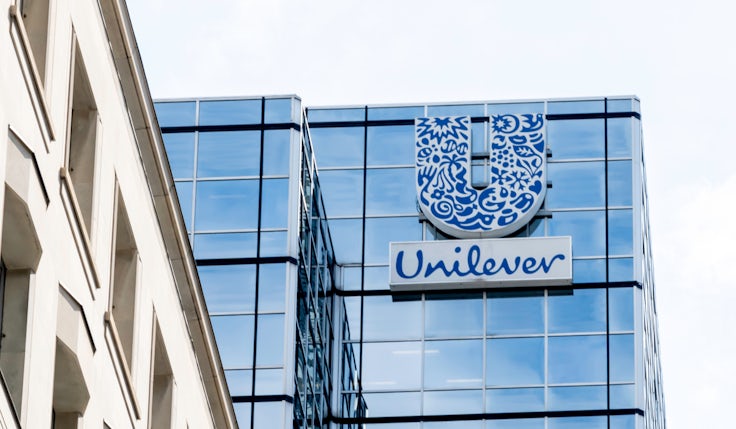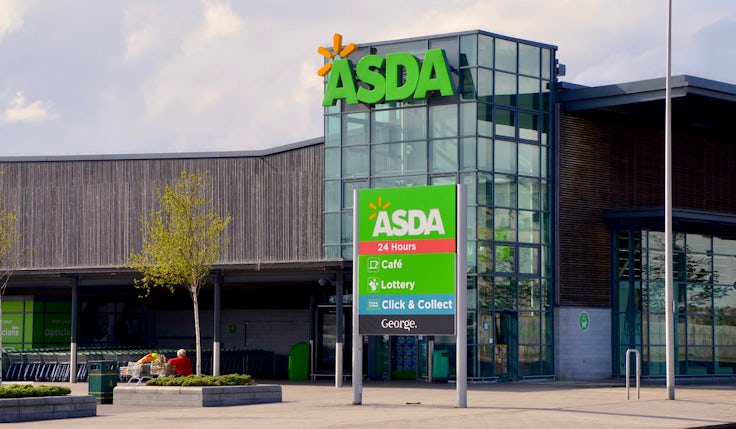Generative AI reshaping teams, supermarket visits, influencers: 5 interesting stats to start your week
We arm you with all the numbers you need to tackle the week ahead.
Most CMOs think AI will reshape marketing teams
Around two in three (65%) top marketers expect generative AI to bring about structural changes to their team in the future.
The research, which surveyed marketers at various seniority levels, finds that 48% of marketers expect AI to significantly impact team roles, with another 39% predicting moderate change.
More generally, over three in four marketers (79%) are planning to expand their use of AI this year, but less than half (49%) report that they can measure its ROI.
While almost two-thirds (63%) of marketers are now using generative AI, almost four in five (78%) of those only started doing so in 2024. Just 10% of marketers describe their AI implementation as “very advanced”.
The research also suggests gaps in perceptions around team capabilities and leadership’s commitment to AI. While 44% of CMOs rate their teams as “advanced” in AI, just over a quarter (27%) of managers agree. Similarly, 65% of CMOs say leadership is “very committed” to AI, but just 32% of their teams feel the same.
Source: Jasper
Consumers visited fewer supermarkets in February
 UK households visited an average of five different grocers in February 2025, the lowest level in the month since 2021, according to data from Kantar.
UK households visited an average of five different grocers in February 2025, the lowest level in the month since 2021, according to data from Kantar.
Kantar head of retail Sally Ball diagnoses this as being partly down to the role of supermarket loyalty schemes, which motivates shoppers to stick with particular retailers with exclusive discounts.
Discounting and promotional activity in general helped to keep grocery price inflation steady at 3.3% in February 2025. Items bought on offer now account for 27.6% of sales, a rise of 0.3 percentage points on last year.
As the fifth anniversary of the start of lockdown approaches, the Kantar research also finds some Covid era habits have stuck. For example, shoppers made one less visit to supermarkets in February 2025 than they did in 2020. Online shopping took a 12.3% share of spend in February, versus 8.6% in 2020.
Source: Kantar
British consumers believe influencers are driven solely by money
 Over nine in 10 (92%) British consumers believe influencers are solely driven by money, making them distrustful of anything they promote.
Over nine in 10 (92%) British consumers believe influencers are solely driven by money, making them distrustful of anything they promote.
The study finds that the older consumers get, the less likely they are to trust influencer promotions. Indeed, almost all (96%) consumers aged 64-plus agree influencer promotions are misleading. However, among 18- to 24-year-olds, an overwhelming majority of 86% still believe influencer promotions are motivated solely by money.
Consumer cynicism is not reserved only for influencers, with just 7% of British consumers agreeing that news headlines are never manipulated. Less than one in five (17%) British consumers say they would trust a politician’s pledge to lower the cost of living.
Source: OLBG
Just a third of agencies believe marketers give constructive feedback
 Around half (52%) of marketers believe they give clear and constructive feedback in evaluating creative ideas; however, less than a third (30%) of agencies agree.
Around half (52%) of marketers believe they give clear and constructive feedback in evaluating creative ideas; however, less than a third (30%) of agencies agree.
Subjectivity also dominates decision-making, with 89% of agencies and 84% of marketers admitting that personal opinion has a big impact.
Meanwhile, just 30% of agencies and 27% of marketers feel well-trained in evaluating ideas.
The global study ‘The BetterIdeas Project’, carried out by IPA, WFA, BetterBriefs and Flood + Partners, asked 1,034 agency, marketer and in-house respondents across 54 countries about the state of the creative process.
It finds that the industry places great value on creative ideas, with over three-quarters of marketers and 91% of agencies agreeing they are essential to an organisation’s marketing efforts.
Respondents describe the approval process as inconsistent, slow, subjective and painful. Only 23% of agencies (rising to 56% of marketers) believe it works well, while just 43% of agencies and 62% of marketers say the right people sign off on creative ideas.
Meanwhile, 23% of agencies and even fewer (15%) marketers agree that briefs are always used by their organisations when evaluating ideas, and only 10% of all respondents agree that ideas are evaluated against clearly defined criteria.
Alarmingly, less than a third of agencies (29%) believe that marketers inspire them to do their best work.
Source: IPA, WFA, BetterBriefs and Flood + Partners.
Discounters fastest growing grocery retail channel last month
 Discounters were the fastest growing channel in grocery retail in February, growing by 6%. By contrast, convenience channels were down 0.1% last month.
Discounters were the fastest growing channel in grocery retail in February, growing by 6%. By contrast, convenience channels were down 0.1% last month.
Overall, grocery sales growth slowed, growing 4% year-over-year for the four weeks ended 22 February. This represents a slight slowdown versus January’s growth of 5.3%.
Aldi and Lidl both grew sales faster than the overall figure, at 4.7% and 8.4%, respectively.
Valentine’s Day drove sales across retailers, with grocery chains seeing their strongest growth in the lead up to the occasion.
Many retailers offered promotional activity to take advantage of the demand, and promotional spend contributed 24% of sales, which was supported by continued investment in price cuts and dine-in offers. Shoppers spent £137m on dine-in ready meals in the week ended 15 February, up 2.9% versus last year.
Source: NIQ








